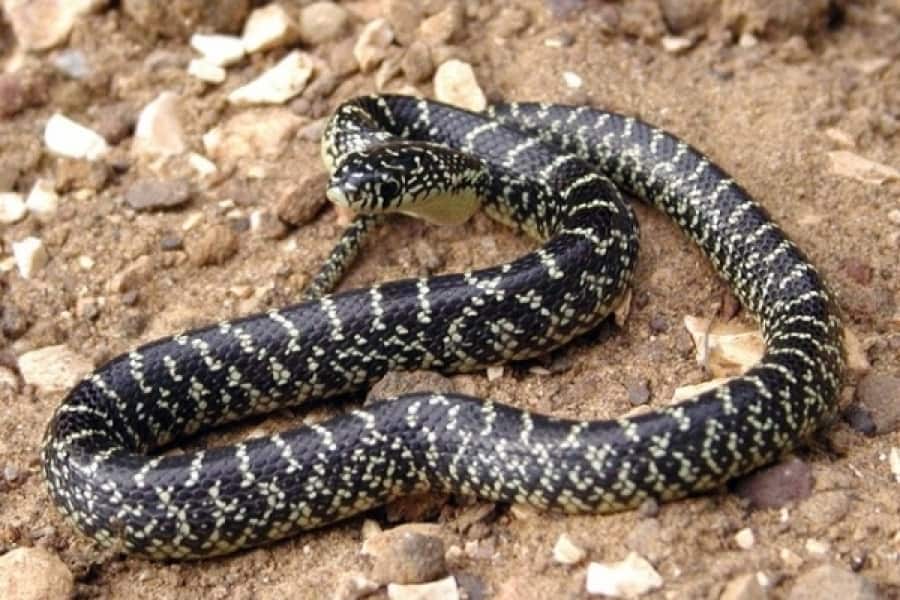
Scientific Name
- The scientific name of this snake is known as Lampropeltis getulua holbrooki.
Description
- It is always known as a “salt-and-pepper” snake.
- Their names are Guinea Snake and Say’s Kingsnake.
- They have smooth and shiny scales.
- Unique light yellowish spots cover the whole black or dark brown body.
- In the wild, it behaves more aggressively than other species of kingsnakes.
- It is recommended to keep captive speckled kingsnake as a pet, and the wild tends to be more aggressive even though it may be tamed with frequent handling.
- They are non-venomous species and immune to venomous snakes.
Distribution
- The snakes can be found in the Southern Illinois to the Gulf of Mexico as well as the South Western Alabama.
Breeding
- They take approximately 2 – 3 years to become adult snakes.
Nesting
- The matured adult snakes lay 6 to 15 eggs per clutch.
- The eggs take 8 weeks to hatch.
Size
- Adult size: Up to 50 inches.
Life Span
- They live up to 25 years.
Speckled Kingsnake Food and Feeding
- The main source of food is mainly rodents.
- The snake also eats other snakes, frogs, lizards, small mice, and birds.
Natural Habitat
- They are often found in marshes, prairies, pastures, wetlands, woodlands, farms, swampy areas, open fields, or bottomland hardwood forests.
- Most likely near water.
Other Information for Pet Lovers
- It is recommended to keep captive-bred Speckled kingsnake as they are docile.
- Many speckled kingsnakes in the pet market today are captive-bred.
